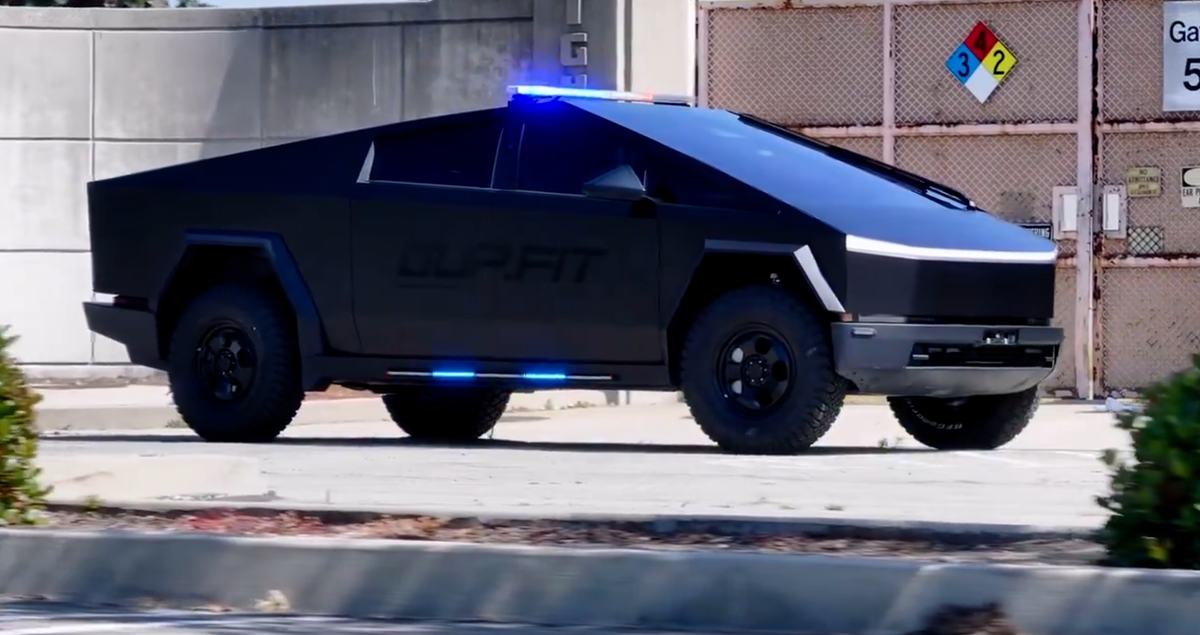A California police department wants to be the first agency to have a law enforcement-branded Cybertruck, according to an internal email obtained by 404 Media.
The email Sergeant Jacob Gallacher, of the Anaheim Police Department, sent in early February read “P.S. I spoke with the Chief yesterday and we still want to be the first police agency to have a Cybertruck. If anyone can make that happen, I know it is you!” Gallacher sent the email to James Hedland from UP.FIT, a company that sells modified Teslas for use by law enforcement. The email was part of a conversation about the department’s use of Teslas.
Gallacher later told 404 Media that the email was something of “a joke,” but reaffirmed the agency’s wish to obtain a Cybertruck before other agencies, even if more for “community engagement” than using it as a patrol vehicle.
“We would, but it’s not necessarily from a patrol perspective,” Gallacher said. 404 Media obtained the email through a public records request.



Fast acceleration and low fuel use might be desirable characteristics for a police vehicle, but that seems like a kind of pricey vehicle to be used in a role that one expects wear-and-tear in.
thinks
Sometimes police need to sit in their car idle for a long time. If the traction battery in the Cybertruck can be used to drive accessories (like, if there’s an inverter or something driven by the traction battery), that might be useful. My understanding is that a number of EVs don’t permit for that, though.
The Cybertruck explicitly advertises its 120/240vac inverter for ‘job site tools’ and other similar uses; then voids your warranty if you actually use it ‘while stationary’.
Here’s Louis Rossmann ranting about it for a bit.
Oh, that’s nice.
That’s not.
Hmm. I wonder if it’s because adding extra charge/discharge cycles eats into battery life, which is probably a major bound on the car’s life.
considers
Honestly, if EVs don’t have a way to read charge/discharge count in a way that’s hard-for-potential-resellers-to-fiddle-with the way odometers are, they probably should, and EV sales should probably list that number the way cars do mileage today, as a measurement of “wear”.
EDIT: And at least for the battery, the warranty should probably be on the number of charge/discharge cycles, not on the distance traveled.
Oh, most definitely. Tracking battery wear should 100% be standard practice, and considered when buying/selling used EVs.
I just find it interesting that Tesla tells you to do something, then ultimately punishes you for doing so.
If you’re not supposed/allowed to use it as a stationary power station; don’t advertise that use case as a selling point.
I’m honestly asking- what would a practical non-stationary use for such a thing be?
The only thing that came to mind is charging cordless tool batteries between job sites. Most other things you’d want mobile usually has a 12v alternative, if not being explicitly designed for travel.
It really is a stupid limitation, and I’m mostly sure it’s there just as an excuse to not payout warranty claims.